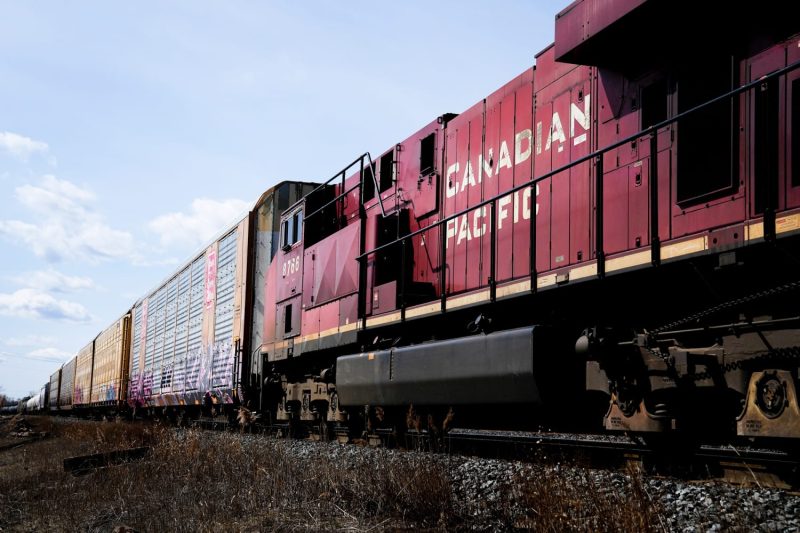In a potential shake-up to the North American supply chain, Canada’s two largest railroads, Canadian National Railway (CN) and Canadian Pacific Railway (CP), are in danger of facing a work stoppage due to ongoing labor disputes with their workers’ unions. The impact of such a work stoppage on both Canadian and American industries could be significant, disrupting the flow of goods and supplies across borders and prompting a ripple effect throughout various sectors. As the backbone of the transportation network, railways play a crucial role in moving goods between the two countries, making any disruption to their operations a cause for concern.
The possibility of a work stoppage at CN and CP raises alarms within the business community due to the interconnected nature of the supply chain. To put it into perspective, nearly 75% of Canadian exports are destined for the United States, highlighting the vital link between the two countries’ economies. Any interruption in rail services would immediately disrupt the movement of goods such as automobiles, oil, grain, and consumer products, impacting industries ranging from manufacturing to agriculture.
One of the primary concerns stemming from a potential work stoppage is the ability to meet delivery timelines. Companies on both sides of the border rely heavily on a just-in-time delivery system to keep their operations running smoothly. If rail services are halted, businesses could face delays in receiving essential components, leading to production slowdowns or even shutdowns. This could have a domino effect on supply chains, affecting downstream suppliers and customers alike.
Moreover, the impact of a rail work stoppage extends beyond immediate disruptions. It could result in a loss of revenue for businesses that rely on timely deliveries, as well as increased costs associated with finding alternative transportation methods. Trucking companies, already operating at near capacity, may struggle to absorb the additional freight volume, further exacerbating the situation. The cascading effects of a rail disruption could lead to increased prices for consumers, decreased competitiveness for businesses, and overall economic instability.
In response to the looming threat of a work stoppage, both CN and CP are engaged in negotiations with their respective unions to prevent such an outcome. The goal is to reach a mutually beneficial agreement that addresses the concerns of workers while ensuring the continuity of rail services. However, the complexity of labor relations and the potential for disagreement between the parties pose a significant challenge to reaching a resolution quickly.
The possibility of a work stoppage at Canada’s two largest railroads serves as a stark reminder of the critical role that transportation infrastructure plays in maintaining the flow of goods and services across borders. As negotiations continue between the railroads and their unions, stakeholders are closely monitoring the situation, keenly aware of the far-reaching implications of any disruption to rail services. The outcome of these discussions will undoubtedly have a profound impact on the North American supply chain and the broader economy at large.

